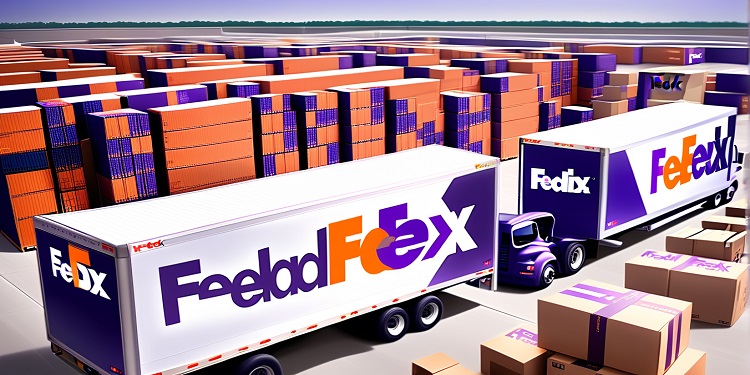The global supply chain industry is on the brink of a transformative shift as blockchain technology and complementary innovations pave the way for paperless, efficient operations. Industry leaders are highlighting the need for a broader perspective to understand this evolution, emphasizing the interconnected nature of global logistics. Viewing the supply chain landscape as a unified global ecosystem without borders underscores the importance of cross-sector collaboration. Businesses are now moving away from physical constraints, leveraging digital tools to enhance operational transparency and efficiency.
FedEx, a key player in logistics and e-commerce, has been at the forefront of this transformation through its strategic focus on blockchain technology. The company’s experience with blockchain began in 2017, positioning itself early to explore the potential of decentralized systems. By adopting innovative digital solutions, FedEx aims to address challenges in data transparency, traceability, and operational efficiency within global supply chains.
The Role of Blockchain in Modernizing Logistics
Blockchain is emerging as a pivotal technology in modernizing logistics. Industry experts describe it as a secure digital ledger that permanently records transactions while offering transparency to all involved parties. It leverages cryptographic tools to ensure data integrity, providing a trusted platform for collaboration in real-time. This clarity helps address the complexity surrounding blockchain, making the technology more accessible to businesses looking to digitize their supply chains.
However, achieving scalability in blockchain implementation remains a challenge. FedEx initially developed a proprietary blockchain solution but later identified the need for open systems to scale operations effectively. This realization has reinforced the importance of openness and shared global standards to enable widespread adoption. Harmonized frameworks are critical for integrating blockchain solutions across geographies and industries, creating a foundation for standardized data consumption.
Complementary Technologies Enhance Blockchain Solutions
Blockchain alone cannot revolutionize supply chains; its potential is amplified by integrating complementary technologies. Tools like sensors, artificial intelligence (AI), and digital identities are playing crucial roles in this transformation. For instance, during the COVID-19 pandemic, advanced sensors combined with blockchain created immutable records of vaccine shipments, including temperature, location, and movement. This integration ensured transparency and trust in critical supply chains, highlighting the practical applications of blockchain in real-world scenarios.
Additionally, innovations like digital product passports align with sustainability goals by enabling lifecycle tracking of products—from production to recycling. These tools promote accountability and transparency, essential for building sustainable supply chain systems. The adoption of such technologies signals a significant step toward creating a connected and responsible digital ecosystem.
Redefining E-Commerce through Unified Systems
The e-commerce sector is also undergoing significant changes driven by digital innovation. Industry leaders envision a future where fragmented systems are replaced by unified digital experiences. Instead of separate platforms with individual checkouts, consumers could manage their purchases through a single wallet and shopping cart, enabling direct vendor connections. This model simplifies transactions, eliminates intermediaries, and enhances user control, paving the way for open commerce.
This evolution reflects a shift toward efficiency, where technology streamlines processes and reduces operational friction. By integrating blockchain with emerging tools, businesses can create seamless digital experiences for consumers while optimizing backend logistics.
Collaboration and Co-opetition in Blockchain Adoption
Collaboration among competitors, often referred to as “co-opetition,” is emerging as a crucial strategy for blockchain adoption. This approach involves rivals working together to achieve shared goals, particularly in addressing global challenges. For instance, during the COVID-19 crisis, logistics giants collaborated to ensure the timely delivery of vaccines by splitting responsibilities geographically. Such initiatives demonstrate that collaboration can drive progress in areas where mutual agreement outweighs competition.
The logistics industry also draws parallels with sectors like aviation and railways, where shared standards have enabled global growth. Experts believe blockchain can follow a similar trajectory if interoperable standards are established. While the internet achieved global reach through predefined frameworks like HTTP and TCP/IP, blockchain’s initial lack of standardized protocols has slowed its adoption. Building harmonized global systems will require coordinated efforts across industries, governments, and businesses.
The Path to a Digital Future
The future of supply chains lies in the convergence of blockchain, AI, sensors, and digital identities to create a fully digitized and transparent ecosystem. Industry experts suggest that businesses now have an opportunity to rethink traditional processes and embrace digital transformation. By digitizing essential data elements, companies can overcome operational limitations and unlock new levels of efficiency.
Achieving this vision will require collaboration across sectors and geographies, with governments and businesses playing a central role in developing supportive frameworks. As blockchain continues to gain traction, the logistics industry is poised to enter a new era of innovation, marked by transparency, sustainability, and interconnectedness.

